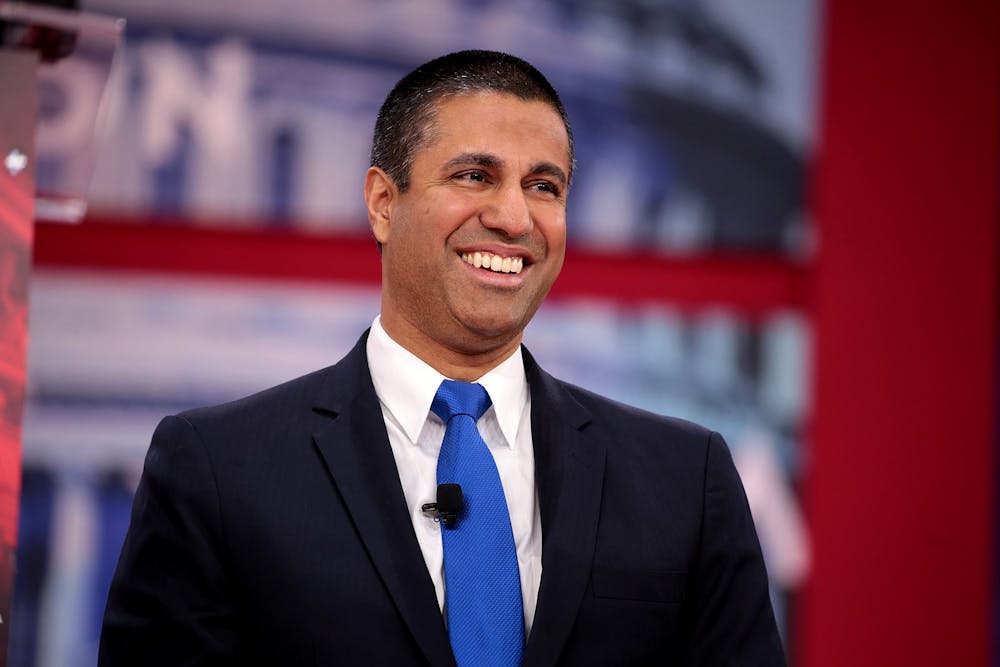The Federal Communications Commission announced their plan to fully repeal former President Obama’s 2015 net neutrality decision in late 2017, and soon after were met with deafening fanfare and outrage from critics across the nation. These activists found success inciting the public by leveraging trite boogeymen and hackneyed, fear-mongering tactics — demonizing the “big cable companies” who purportedly wanted nothing more than to make life a living hell for their consumers. We all remember the viral tweets prophesying the end of the internet as we know it — but the proposed repeal quickly came and went, and none of the foretold doomsday scenarios ended up materializing whatsoever. In fact, I would assert that the internet is healthier and faster now than it has ever been, and we owe it all to the astute decision-making and bold leadership of FCC Chairman Ajit Pai.
Before we can discuss the ramifications of the repeal however, we must first delve into what factors led to Pai’s proposal in the first place. As Pai pointed out in a 2017 opinion piece, this generation-spanning debate began with the Clinton-era Telecommunications Act of 1996 — allowing for a truly free internet “unfettered by Federal or State regulation.” This was countered two decades later by Obama’s restrictive Title II framework, which sought to constrain internet service providers with strict regulations — all in the name of freedom, somehow.
As one would expect, this neutering of the free market brought about disastrous results, such as a 5.6 percent drop in broadband network investment in the following two years — the first time such an event had occurred outside of recession. In addition, these regulations imposed a massive financial burden on the Internet Service Providers, who were forced to change their practices to comply with the law. This significantly hindered industry efficiency, as evidenced by the fact that “80 percent of survey respondents [reported] that Title II regulation had caused delay or reduction of network expansion and services.”
In order to restore freedom of the internet, Pai boldly moved to repeal this policy. He persevered despite an onslaught of ridicule from Twitter trolls and mainstream media talking heads alike, as well as death threats and racist attacks from his most boisterous left-wing critics. The decision came into effect on June 11, 2018, and has since paid numerous dividends in terms of broadband speed and investment increases. According to an FCC press release, in the calendar year following the instantiation of the bill, investment in broadband networks rose an estimated $3 billion and fiber-optics have been “deployed to more new homes in the United States than any year in history.” Moreover, fixed broadband speeds in America rose by more than 28 percent, representing one of the largest annual increases ever recorded.
Never in my whole life have I seen such an egregiously incorrect narrative than that which surrounded the FCC and their decision to repeal net neutrality. But now that the positive results are starting to come to fruition, we are hearing nothing but radio silence from the media, politicians and misinformed citizens who acted as harbingers of the supposed apocalypse less than two years ago. I can’t help but theorize that the majority of this negativity and doomsaying stemmed solely from the fact that Pai was nominated by our controversial, greatly maligned sitting President, Donald Trump. However, no matter what one’s feelings are towards an administration, I believe biases must be ignored when evaluating policy proposals in favor of objectivity, as even politicians that we may despise can make good decisions.
These events also highlight the importance of not getting bogged down by sweeping media narratives — which often turn out to be incorrect — and instead choosing to do independent analyses of issues to form our own opinions. Historically speaking, we know that the power of the free market is almost always the best decision when it comes to regulating goods in our economy, and the quantitative results of the FCC repeal reveal that the internet behaves in much the same way. Had it not been for the valiant efforts of Pai — even when it seemed like the entire nation was against him — internet growth and development in our country may have been permanently stunted, and for that reason, we owe him an apology.
Milan Bharadwaj is an Opinion Columnist for The Cavalier Daily. He can be reached at opinion@cavalierdaily.com.







